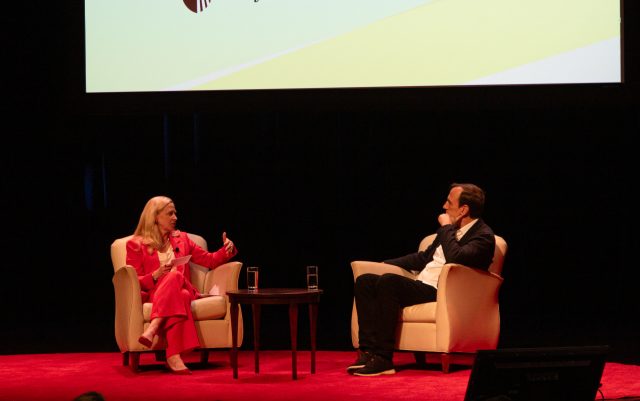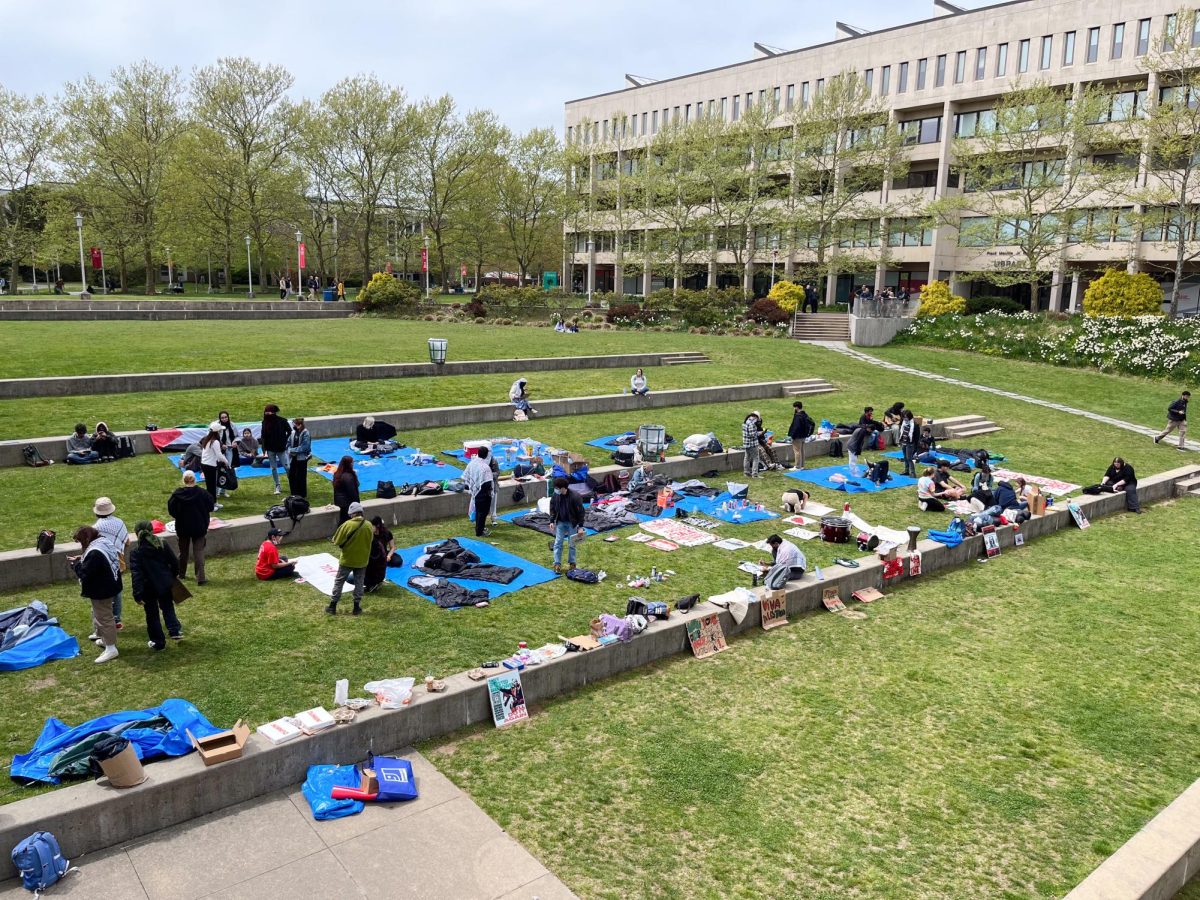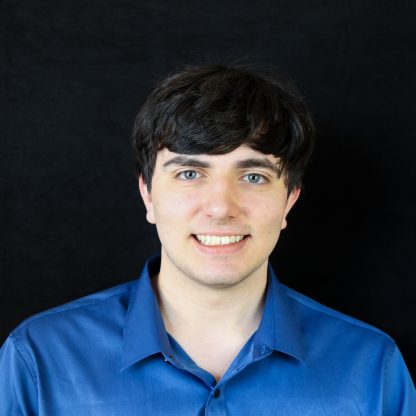
On Wednesday, Oct. 25, Stony Brook University hosted award-winning journalist and author Jeff Goodell to discuss climate change in the school’s presidential lecture series.
President Maurie McInnis hosted the discussion in which the two discussed Goodell’s work in documenting climate change, how rising temperatures and sea levels will change how humans live and how human structures are created.
“This summer was the hottest summer ever recorded by humans,” Goodwill remarked in his introduction. “And you can see the changes from the 1880s, [the] industrial revolution. This summer’s temperatures were crazy.”
In addition, Goodwill spoke about how the rising temperatures were causing deaths — situations that he had seen firsthand during his work as a journalist. An example he gave, documented in his book, “The Heat Will Kill You First,” described an undocumented individual, Sebastian Perez, who was working outside on a sweltering summer day in Portland, Oregon during the start of the Pacific Northwest heatwave in June 2021. Perez was afraid that seeking shelter and taking breaks would lead to the loss of his job. Without the legal protections given to documented workers, there was nothing incentivizing his employer to give him breaks and other necessities.
Before the end of the workday, Perez had passed away from heat exposure.
“To take his picture, I went out into the field where he had died. I got there a couple of days later,” Goodwell said. “I couldn’t take the picture because my iPhone was too hot. So I had to go back, sit in my car, turn the air conditioning on for 15 minutes, cool off my iPhone, and then I could take the picture.”
McInnis then joined Goodell on stage and the two began to discuss the future of humanity as rising temperatures become more and more pronounced and impactful in our daily lives. This is especially the case from an economic lens, as people in less-wealthy areas can struggle to obtain relatively basic cooling tools such as air conditioning.
“What is it that New York, or a city like New York, is going to have to do that helps everyone?” McInnis pondered. “The lower income and under-resourced communities in rural [areas] and New York are affected in much greater ways. They don’t have air conditioning, they don’t have as much access to shade and so forth. So what are we going to do? What should New York do?”
Goodwell responded by saying that New York and similar cities need to do a better job of communicating and providing emergency notifications to citizens, similar to how the city operates when there is an extreme weather event. For a more long-term goal, he said the city needs to prioritize green spaces that will provide shade and beautify the city.
In addition, he pointed out the power cities have over an individual’s cooling systems, should they fall behind on their bills.
“In places like Phoenix, that was a big problem,” Goodwell said. “If you are behind on your electric bill, they can cut your service off and they can do that to a number of people in extreme heat. Waves and waves of people died because of that.”
In mid-October, the Associated Press reported that investigators in Phoenix had begun collecting information about the demographics of those who lost their lives to extreme heat, though power companies that serve the city are now required to keep the power on for all homes during periods of extreme heat, whether they have paid their bills or not.
The conversation about climate change is particularly important to Stony Brook, as the University last year won a bid to be the anchor institution for the New York Climate Exchange, a new campus on Governor’s Island that will focus on conducting research to help solve the climate crisis.
Despite the scientific advances happening to help the climate crisis, Goodwill ended his speech by pointing out that an attitude shift among the general population is going to be the most imperative to solving global warming.
“You know, we’re addicted to a certain kind of life that we think is the way it has to be,” he remarked. “And it’s very hard to convince people that there’s better ways to do it and have to sacrifice a little comfort just to do it.”
Many in the audience also felt like more action needed to be taken regarding rising temperatures.
Grace Choi, an undeclared freshman who attended the lecture, remarked that it was an important event that allowed her to learn more about a topic she was learning about in her classes.
“I think more people should be knowledgeable about climate change,” Choi said. “He talked about how we’re not doing stuff, so there’s obviously things [we] can do.”
Dan Stenzler, a marine biologist living in the hamlet of East Setauket, also remarked on how the actions people took now in regard to the climate crisis would affect the world future generations call home.
“I think it’s critical that we’re thinking about our kids and grandchildren,” Stenzler said. “What kind of world they’re inheriting. I hadn’t thought about heat to that degree. But I think as he was saying, we know when it’s hot outside, but I haven’t been in a position where I’ve experienced that kind of extreme heat.”










